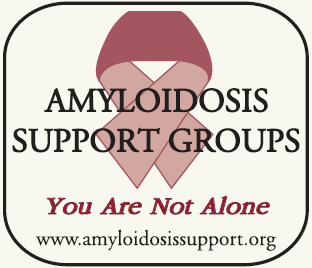Spectrum of Peripheral and Autonomic Neuropathies in Patients With aTTRwt Amyloidosis and Response to Patisiran Therapy
study id #: NCT05023889
condition: Polyneuropathies, Wild Type ATTR Amyloidosis, Wild-Type Transthyretin-Related (ATTR)Amyloidosis, Wild-Type Transthyretin Cardiac Amyloidosis, Transthyretin Amyloidosis
status: Recruiting
purpose:To evaluate the efficacy and safety of patisiran in patients with wtATTR amyloidosis and symptomatic polyneuropathy by evaluating the effect on neurologic impairment and quality of life.
intervention: patisiran
results: https://clinicaltrials.gov/ct2/show/results/NCT05023889
last updated: February 22, 2024
start date: August 3, 2022
estimated completion: December 2024
last updated: September 13, 2023
phase of development: Early Phase 1
size / enrollment: 10
study description: The study will consist of a baseline screening period and a 24-month treatment period. Eligible patient will receive patisiran administered as an IV infusion once every 21 days for a 24-month period. During the 24-month treatment period study patients will undergo assessments for efficacy and/or safety as outlined in the schedule of assessments with key efficacy assessments being performed prior to the first dose and proceeding as outlined in the schedule of assessments.
primary outcomes:
- Change in Neurological Impairment Score
to assess the severity of functional impairment of motor and sensory nerves.NIS is a measure of motor strength, comprised of cranial nerve and both upper and lower limb motor assessments. The minimum and maximum values are 0 and 192, respectively. A higher score indicates a worse outcome. - baseline to 24 months
Norfolk QOL-DN
Change in Norfolk Quality of Life Questionnaire (Norfolk QOL-DN).The change from baseline in Norfolk QoL-DN at 24 months. The Norfolk QoL-DN questionnaire is a standardized 35-item patient-reported outcomes measure of diabetic neuropathy - small fiber, large fiber, and autonomic nerve function. The minimum and maximum values are -4 and 136, respectively. A higher score indicates a worse outcome. - baseline to 24 months
COMPASS 31score
Composite Autonomic Symptom Score (COMPASS) 31a self-assessment instrument for patient reported autonomic symptoms such as dizziness, constipation, diarrhea, nausea/vomiting, and incontinence. The minimum and maximum values are 0 and 100, respectively. A higher score indicates a worse outcome - baseline to 24 months
secondary outcomes:
- PND Polyneuropathy disability (PND) Score
baseline to 24 months - Karnofsky, performance status score
baseline to 24 months - EuroQOL
baseline to 24 months - EMG -Electromyography
baseline to 24 months - Tilt Table Test
24 months - Optional exploratory nerve and muscle biopsy
during screening visit ( 28 day window)
inclusion criteria:
• Eligible Sexes: all
Male or female >18
Diagnosis of symptomatic polyneuropathy
wtATTR based on cardiac biopsy or Tc99m PYP
Negative hATTR sequencing
0 to 0.5 gram/dl serum monoclonal protein.
No history of other secondary causes of neuropathy.
Have adequate complete blood counts and liver function tests
Have negative serology for hepatitis B virus (HBV) and hepatitis C virus (HCV)
exclusion criteria: Criteria:
Other Causes of neuropathy as determined by the principle investigator.
Has known human immunodeficiency virus (HIV) infection;
Primary AL.
NYHA Class IV at the Screening visit. 5. Has any of the following laboratory parameter assessments at screening:
Aspartate transaminase (AST) or alanine transaminase (ALT) levels ˃2.0 × the upper limit of normal (ULN).
Total bilirubin ˃ULN. Patients with elevated total bilirubin that is secondary to documented Gilbert's syndrome are eligible if total bilirubin <2 × ULN.
International normalized ratio (INR) ˃1.5 (unless patient is on anticoagulant therapy, in which case excluded if INR ˃3.5).
6. Has eGFR < 30 mL/min/1.73 m2 (using the modification of diet in renal disease [MDRD] formula). 7. Is currently taking diflunisal; if previously on this agent, must have at least a 6-month wash-out prior to dosing (Day 1).
8. Is currently taking doxycycline, or tauroursodeoxycholic acid; if previously on any of these agents must have completed a 30-day wash-out prior to dosing (Day 1).
9. Received prior TTR-lowering treatment or participated in a gene therapy trial for amyloidosis. 10. Current or future participation in another investigational device or drug study, Scheduled to occur during this study, or has received an investigational agent or device within 30 days (or 5 half-lives of the investigational drug, whichever is longer) prior to dosing (Day 1). In the case of investigational TTR stabilizer drugs, washout for 6 months prior to dosing (Day 1) is required; this does not apply to patients who are on tafamidis at baseline (per inclusion Criterion 4).
11. Requires treatment with calcium channel blockers (eg, verapamil, diltiazem) or digitalis.
12. Other non-TTR cardiomyopathy, hypertensive cardiomyopathy, cardiomyopathy due to valvular heart disease, or cardiomyopathy due to ischemic heart disease.
13. Has non-amyloid disease affecting exercise testing (eg, severe chronic obstructive pulmonary disease, severe arthritis, or peripheral vascular disease affecting ambulation).
14. Had acute coronary syndrome or unstable angina within the past 3 months. 15. Has history of sustained ventricular tachycardia or aborted ventricular fibrillation.
16. Has persistent elevation of systolic (˃180 mmHg) and diastolic (˃100 mmHg) blood pressure that is considered uncontrolled by physician.
17-Has untreated hypo- or hyperthyroidism. 18-Prior or planned heart, liver, or other organ transplant. 19. Had a malignancy within 5 years, except for basal or squamous cell carcinoma of the skin or carcinoma in situ of the cervix that has been successfully treated.
20. Has other medical conditions or comorbidities which, in the opinion of the Investigator would interfere with study compliance or data interpretation. 21. Female Is not willing to comply with the contraceptive requirements during the study period.
22. History of illicit drug abuse within the past 5 years that in the opinion of the Investigator would interfere with compliance with study procedures or follow-up visits.
-
sponsor: Austin Neuromuscular Center
contacts: Yessar Hussain, MD, 5129200140, [email protected]
trial center locations: United States
-
United States, Texas
Austin Neuromuscler Center/National Neuromuscular Research Institute
Yessar M Hussain, M.D., 512-920-0140, [email protected]
-
Resurrecting Tc 99m PYP: As Cardiac Amyloidosis Therapies Emerge, an Old Test Gains a New PurposeOnce used to diagnose myocardial infarct...
-
John L. Berk, MDJohn L. Berk is an Associate Professor o...
-
Anne Marie CarrMy name is Anne Marie Carr and I was dia...
-
With CRISPR Gene Editing, Unique Treatments Begin to Take off for Rare DiseasesIn February last year, Doherty — now a...
-
Impact of Genetic Testing in Transthyretin (ATTR) Cardiac AmyloidosisPurpose of Review The review's main foc...
-
U.S. Department of Veterans Affairs: AL Amyloidosis and Agent OrangeAL Amyloidosis and Agent Orange Veteran...
-
ATTR Amyloidosis: Current and Emerging Therapies by Dr. Melissa Lyle – ASG Webinar 7.15.23 – 2/7https://www.youtube.com/watch?v=UcxmPgZ7...
To improve your experience on this site, we use cookies. This includes cookies essential for the basic functioning of our website, cookies for analytics purposes, and cookies enabling us to personalize site content. By clicking on 'Accept' or any content on this site, you agree that cookies can be placed. You may adjust your browser's cookie settings to suit your preferences.
More information
The cookie settings on this website are set to "allow cookies" to give you the best browsing experience possible. If you continue to use this website without changing your cookie settings or you click "Accept" below then you are consenting to this.








